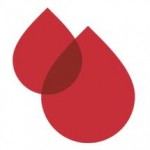
The report is based on two studies presented in the Lancet medical journal. The clot retrieval devices are intended to be an alternative to “clot-busting” drugs, which need to be administered hours after a stroke and are not suitable for all patients.
And some medical devices currently used as alternatives to clot-busting drugs have proven problematic in themselves.
For example, the IVC filter is a small cage-like device implanted in a major vein that runs from the legs to the heart, which is meant to catch blood clots before they travel to the lungs. But a study conducted by the New England Society for Vascular Surgery found that 31 percent of the IVC filters fracture.
Broken filter shards can cause chest pain and a dangerous build-up of fluid and pressure around the heart, with potentially deadly consequences.
The BBC report quotes Prof. Jeffrey Saver from the University of California, Los Angeles, as saying: “Clot-busting drugs only partially reopen 40% of large blocked arteries. These devices partially reopen 70-90% of large blocked arteries. Second, these devices can be used in patients in whom it is not safe to give ‘clot busting’ drugs, such as patients taking anticoagulant medications, patients who had recent surgery, and patients who are between 4.5 to eight hours after stroke onset.”
According to the BBC, clots block blood vessels, starving parts of the brain of oxygen, which leads to symptoms such as paralysis and loss of speech.
If you’ve received an IVC filter, you should consult with a doctor if you have any ongoing symptoms or health concerns. If you have significant injuries, you should also consult with a IVC filter lawyer to discuss your legal rights.
See the story here:
https://www.bbc.co.uk/news/health-19355202
